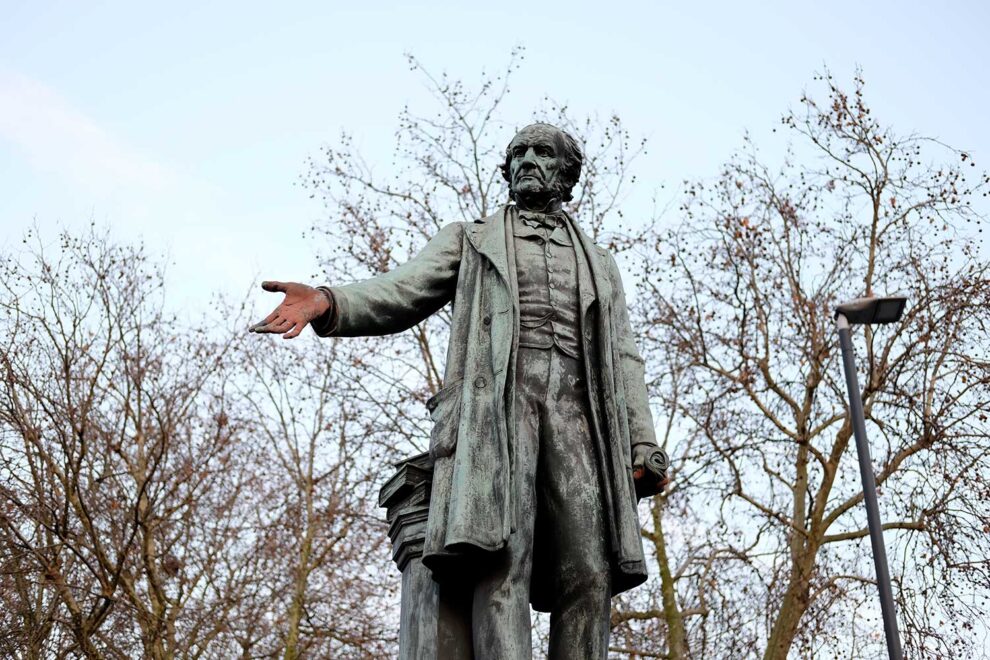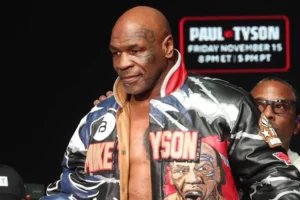Descendants of PM, whose father’s wealth came from sugar plantations, travel to Guyana for 200th anniversary of rebellion by enslaved Africans
The family of one of Britain’s most famous prime ministers will travel to the Caribbean this week to apologise for its historical role in slavery.
Six of William Gladstone’s descendants will arrive in Guyana on Thursday as the country commemorates the 200th anniversary of a rebellion by enslaved people that historians say paved the way for abolition.
The education and career of William Gladstone, the 19th-century politician known for his liberal and reforming governments, were funded by enslaved Africans working on his father’s sugar plantations in the Caribbean.
As well as making an official apology for John Gladstone’s ownership of Africans, the 21st-century Gladstones have agreed to pay reparations to fund further research into the impact of slavery.
John Gladstone was the fifth-largest beneficiary of the £20m fund (about £16bn today) set aside by the British government to compensate planters when the Slavery Abolition Act was passed in 1833.
Early in his career, William spoke in parliament in defence of his father’s involvement in slavery and also helped calculate how much his father would be compensated.
John Gladstone owned or held mortgages over 2,508 enslaved Africans in Guyana and Jamaica. After emancipation he was paid nearly £106,000, a huge sum at the time.
The Demerara rebellion in August 1823 began on one of his plantations. It was led by Jack Gladstone, an enslaved man forced to take his owner’s name, and his father, Quamina, who had been transported from Africa as a child.
About 13,000 Africans rose up in Demerara, a British colony that later became part of Guyana. Conditions for the enslaved were particularly brutal there. The plantations were the most profitable in the British empire, with an enslaved person in Demerara worth twice that of one in Jamaica.
More than 250 enslaved Africans were killed and a further 51 sentenced to death when the uprising was crushed. Many of the convicted were tortured, decapitated and had their heads impaled on poles as a warning to others. Quamina’s body was hung in chains outside one of John Gladstone’s plantations.

Charlie Gladstone, 59, who lives in Hawarden Castle, the north Wales home of his great-great grandfather William, said: “John Gladstone committed crimes against humanity. That is absolutely clear. The best that we can do is try to make the world a better place and one of the first things is to make that apology for him.
“He was a vile man. He was greedy and domineering. We have no excuses for him. But it’s fairly clear to me that however you address it, a lot of my family’s privilege has stemmed from John Gladstone.”
The Gladstone family plans to apologise at the launch of the University of Guyana’s International Institute for Migration and Diaspora Studies, which they are helping to fund with a grant of £100,000.
They are members of the Heirs of Slavery, a group of families who can trace their ancestors back to the enslavement of Africans. Others include the Trevelyans, whose ancestors owned more than 1,000 enslaved people, and the Lascelles, who built Harewood House in Yorkshire with proceeds from slavery. In February, the aristocratic Trevelyan family made reparation history by travelling to the Caribbean and publicly apologising. The former BBC journalist Laura Trevelyan said: “If anyone had ‘white privilege’, it was surely me, a descendant of Caribbean slave owners.” She made a £100,000 reparation payment.
Eric Phillips, chair of the Guyana reparations committee and vice-chair of the Caricom Reparations Commission, said he was very happy that the Gladstones were visiting to apologise: “It is an example to others and means a great deal on the anniversary of such an important event.
“Because Britain was so central to life in the Caribbean, it has a premier role to play in terms of reconciliation and acknowledgement. The British prime minister’s indifference is quite a worry, especially given what the Heirs of Slavery are doing.”
The Church of England, the Dutch and Belgian royal families and the Dutch prime minister are among those who have apologised for their countries’ role in slavery. Rishi Sunak has refused to apologise.
Phillips said: “Sunak knows what has happened with social justice throughout the world and with Black Lives Matter. To be that indifferent is frightening. It shows that he’s not fit to lead a multi-ethnic society like the UK.”
Charlie’s brother, Rob Gladstone, 54, said: “Reparative justice starts with an apology. It would be a more positive thing if more people did it and help build for the future. I think the British government could do something. It’s not massively controversial and it makes sense. Why not?”
The government denies that the prime minister is indifferent. David Rutley, a Foreign Office minister, has said that No 10 believes “the most effective way for the UK to respond to the cruelty of the past is to ensure that current and future generations do not forget what happened, that we address racism, and that we continue to work together to tackle today’s challenges, such as climate change”.
Source: The Guardian
















